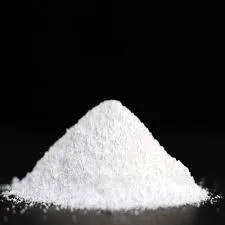The Role of Plastic Additives in Manufacturing Enhancing Performance and Sustainability
Plastic additives have become integral to the manufacturing process, providing a diverse range of properties that enhance the performance, durability, and sustainability of plastic products. As the demand for plastic materials continues to rise across various industries, understanding the significance of these additives is essential for manufacturers striving to innovate and improve their products.
Additives are substances added to polymers to impart specific characteristics or to improve the processing of plastics. These materials are crucial in achieving desired properties such as flexibility, strength, and resistance to heat, UV light, and chemicals. Plastic additives can be categorized into several groups, including stabilizers, plasticizers, fillers, colorants, and flame retardants.
One of the primary functions of plastic additives is to enhance the physical properties of plastic materials. For example, plasticizers, such as phthalates and adipates, are commonly used to increase the flexibility and flow of plastic products. This is particularly important in the production of films and flexible packaging materials, where pliability is essential for functionality. Similarly, fillers like calcium carbonate and talc can improve the mechanical strength and rigidity of plastics, allowing for lighter and more durable products.
The Role of Plastic Additives in Manufacturing Enhancing Performance and Sustainability
In addition to performance enhancement, there is a growing emphasis on sustainability in plastic manufacturing. As environmental concerns increase, manufacturers are seeking alternative additives that minimize ecological footprints. Biodegradable additives, derived from renewable resources, are being developed to enhance the sustainability of plastic products. These innovations help address the urgent need to reduce plastic waste and improve recycling rates.
plastic additive manufacturing

Moreover, the incorporation of recycled plastics into manufacturing processes is becoming more prevalent. Additives can assist in processing recycled materials, ensuring that they maintain their desired properties while being repurposed. This not only contributes to waste reduction but also promotes a circular economy where plastics are reused and recycled rather than discarded.
Colorants are another critical category of additives in plastic manufacturing. They allow for the customization of plastic products, catering to consumer preferences and market demands. Whether in toys, containers, or automotive parts, colorants play a significant role in product differentiation and branding. Advances in colorant technology have also led to the development of non-toxic and environmentally friendly alternatives, aligning with the industry's move towards safer and sustainable products.
Flame retardants are essential additives for certain applications, particularly in the construction and automotive sectors. They reduce the flammability of plastic materials, enhancing safety measures in products used in high-risk environments. Recent developments in this field have focused on creating halogen-free and more environmentally friendly flame retardants, addressing health and environmental concerns associated with traditional flame-retardant chemicals.
Despite the benefits of plastic additives, it is essential for manufacturers to be aware of regulatory challenges. Various countries have imposed regulations regarding the use of specific additives due to health and environmental risks. Staying informed about these regulations and ensuring compliance is crucial for manufacturers aiming to introduce innovative products into the market.
In conclusion, plastic additives are vital components in the manufacturing of plastic products, enhancing performance while contributing to sustainability. As the industry evolves, the focus on environmentally friendly and safe additives will likely continue to grow. By leveraging the benefits of these additives, manufacturers can produce high-quality, durable, and eco-conscious products that meet the changing demands of consumers and regulatory standards. The future of plastic manufacturing lies in striking the right balance between performance and sustainability, making the responsible use of additives paramount in this journey.

